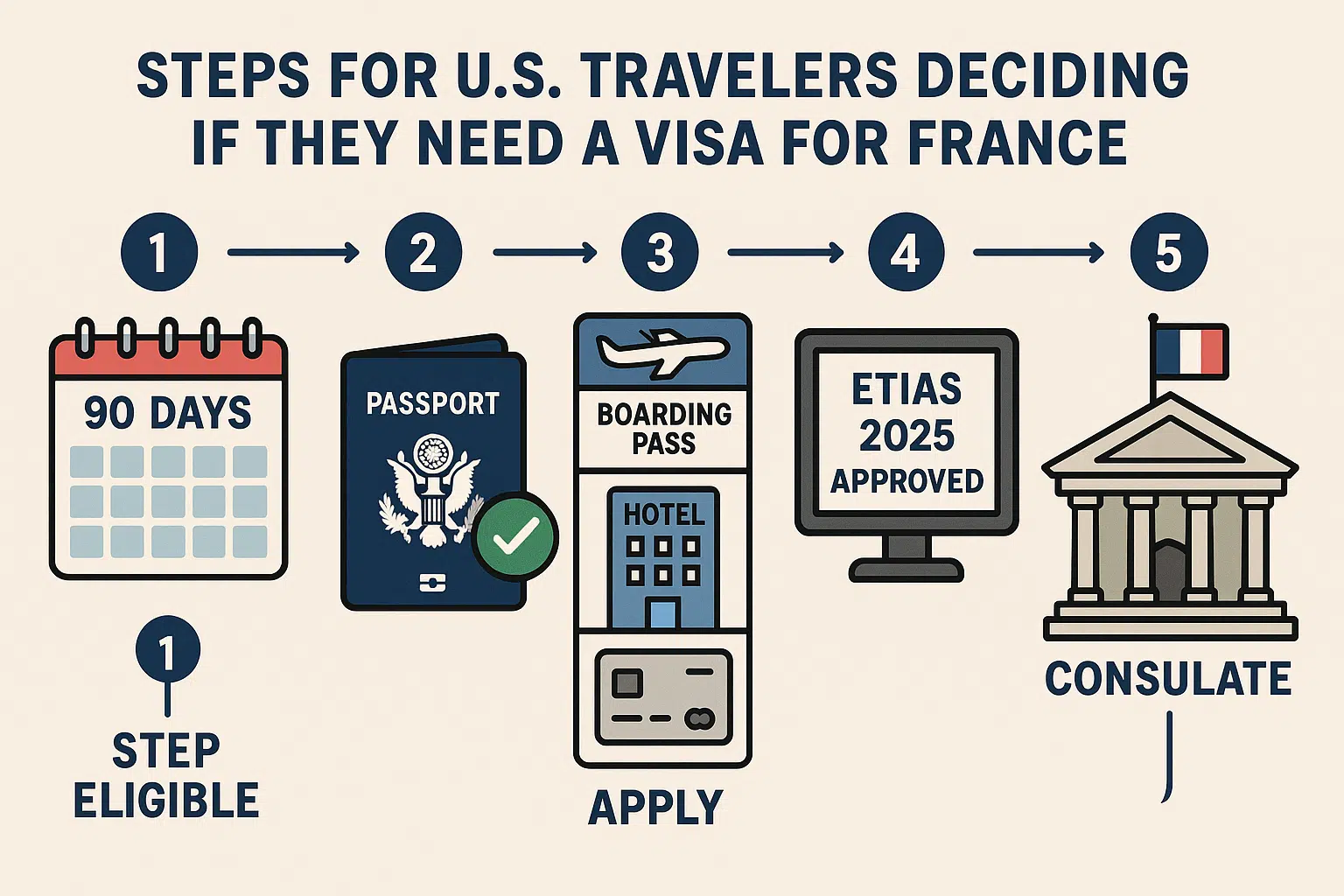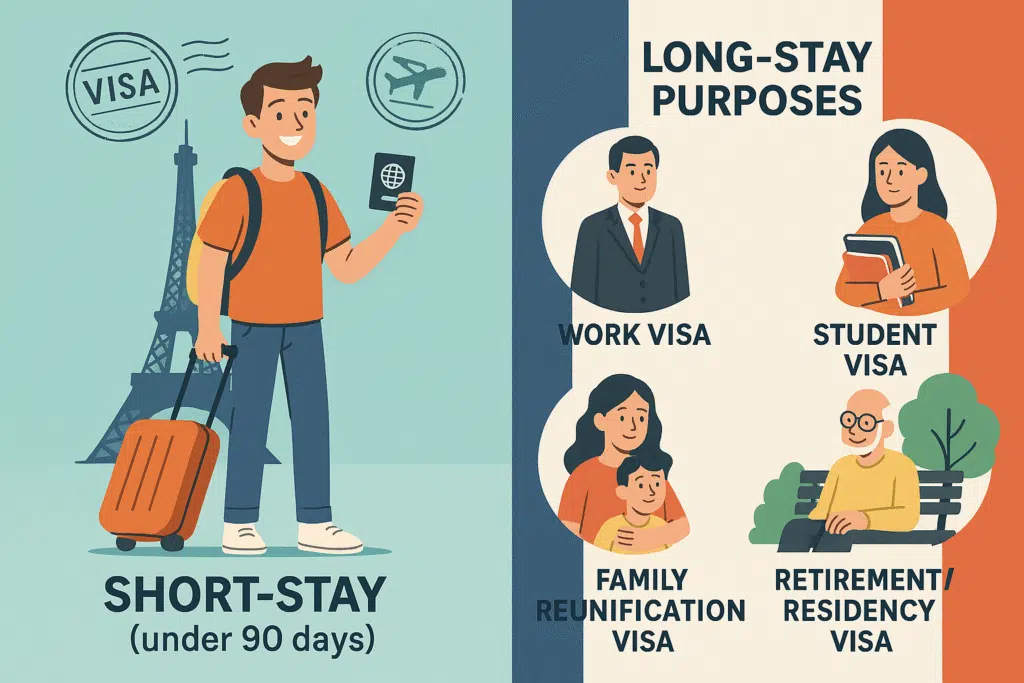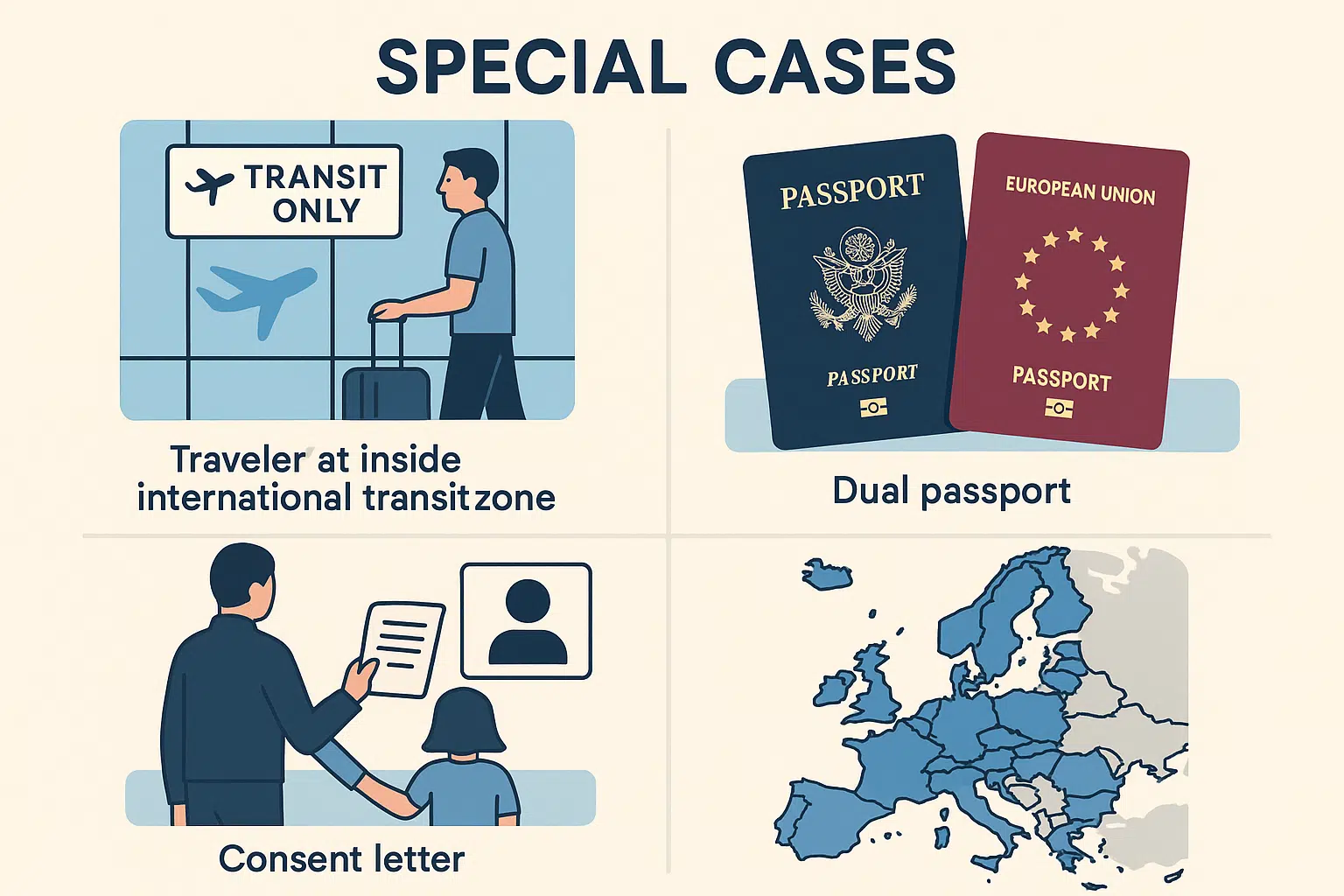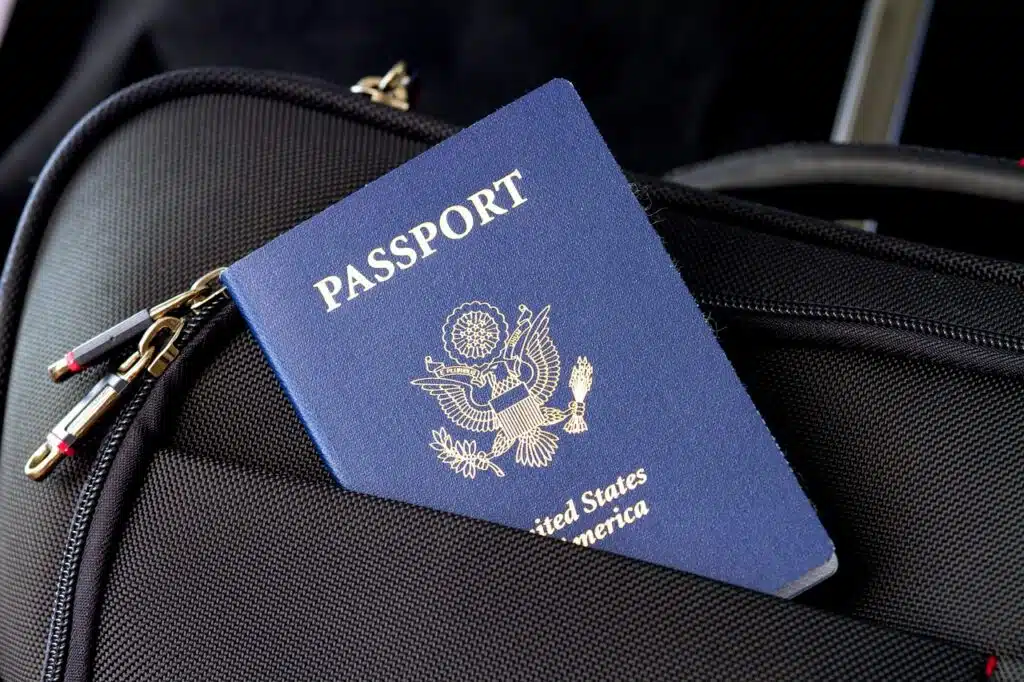Have you ever wondered Do U.S. citizens actually need a visa to visit France? The mere fact is: A visit of less than 90 days would not need a visa. Unless your vision is to study, work, spend your retirement years, or, in general, spend more than three months immersed in the French lifestyle, then, yes, you will need a proper visa. This is all subject to the time you have and what your mission is.
My name is Chloé Laurent, and on this blog, I will take you through the step-by-step process of the visa regulations so you are not swamped by contradictory information on the Internet. You will be educated about short stays, long stays, ETIAS, and special cases. By the end, you will be prepared for what you should get before flying to France.
What U.S. Citizens Need a Visa in France?
The simple answer is NO, U.S citizens do not need a visa to stay temporarily in the country of France. This is in accordance with the Schengen Agreement, to which Americans enjoy free travel in mainland Europe without prior application for a visa. You can have a stay of up to 90 days in France or any Schengen country in a period of 180 days, whether your aim is tourist-related, to conduct business events, meet the family, or a short cultural tour.
You only require a valid U.S. passport, and it is supposed to be valid at least 3 months after your planned departure date. This provision is so convenient to Americans who are interested in a convenient European getaway.
Key Takeaways
- In case you are a U.S citizen and will be traveling to France within 90 days, you will not need a visa.
- France is also a Schengen country, and as such, the 90-day rule is applied in the country as a whole.
- Since 2026, ETIAS (European Travel Information and Authorization System) will be required, but it is not a visa.
- In case you intend to spend over 90 days or will be attending study, work, or residency, you will require a French long-term visa.
- Make sure your passport has a validity of at least 3 months when you are planning to be in the country.
Decide If You Need a Visa Step-by-Step

1. Count Your Days
The enchanted number is 90 days. You do not need a visa in case you want to stay in France or any Schengen country not over than 90 days within 180 days. But the 90 days build up not only in France but all over the Schengen Zone. So you can spend 60 days in Spain and 40 in France, and then you are over.
2. Check Your Passport
Your US passport is your golden ticket; however, it should be valid for at least 3 months beyond your intended exit date. Personally, I also suggest that you keep at least 6 months’ validity to be on the safe side, as airlines and border control officers can deny boarding if your passport is about to expire.
3. Know What to Carry for Border Control
Even though you don’t need a visa for short stays, French border officers may ask you for proof of:
- A return or onward ticket
- Proof of stay (booking of a hotel, Airbnb confirmation, or invitation letter)
- Record of financial resources (bank statement or cash, or a credit card)
- Travel insurance (including medical care in the Schengen Area)
Read Also: Schengen Visa Documents 2026: Full Checklist (10+ Must-Have)
4. Ignore the ETIAS Rumor Mill
A lot of confusion comes from ETIAS. People believe it is a visa, but it is not. ETIAS is merely an online travel authorization that U.S. citizens (as well as those from other visa-free nations) will be required to have by 2026. It’s more like the U.S. ESTA system than a visa. You’ll apply online, pay a small fee, and get authorization linked to your passport. No embassy visits, no long paperwork.
5. If You’re Staying Over 90 Days
This is where things change. When you intend to spend more than 90 days in France to study or work, or to live, the long-stay visa is the one you require. Unlike short stays, this requires:
- Filing U.S. in the French consulate or visa center.
- Making elaborate submissions (proof of purpose, finances, insurance, etc.)
- Waiting to be approved before travelling
What You Actually Do

Short-Stay Trip
Visiting France to tag up as a tourist, short-duration business affair, or visit to family:
- No visa needed.
- Be sure that your passport is valid.
- If the border officers demand, have supporting documents.
Long-Stay or Purpose
If the trip lasts more than 90 days or has a specific intent beyond tourism, then you should select your type of visa:
- Work Visa: In case you are going to work or accept a job.
- Student Visa: To study or attend an educational program at a university.
- Family Reunification Visa: It is when joining a spouse or family member.
- Retirement Visa or Residency Visa: Want to live in France, but that is all.
Different categories have different requirements, which means that you should first know your purpose of stay.
Special Cases

Transit Through France
A simple transit through an airport in France without leaving the international area, you are also exempt. However, if you intend to leave the airport and enter France, the 90-day rule is in effect.
Dual Citizenship Holders
In case you have both U.S. and EU citizenship, it is even easier. Using an EU passport, you are allowed to stay indefinitely without a visa.
Traveling With Minors
If you’re traveling with children, carry notarized consent letters if only one parent is traveling. France sometimes checks for this as a safety measure.
Other Schengen Travel
Remember that your 90-day clock doesn’t reset when you cross from France into another Schengen country. It’s a shared allowance.
FAQs
Is a U.S. citizen required to obtain a visa to travel to France?
Within the conditions that the period of stay should not exceed 90 days over 180 days.
Is it required to travel to France with an ETIAS?
In 2026, Yes. You need TIAS, but this is not a visa but rather an online travel authorization.
What would happen if to were more than 90 days?
Before traveling, you will have to apply to the U.S. on a long-stay French visa.
Is it possible to work in France, being a tourist?
No. To legally work in France, you will require a good work visa.
Read Also: France Schengen Visa 2026: Full Checklist + Pro Tips
Final Words
Do U.S. citizens still need a visa to visit France, 2026? The brief answer is negative, especially during travels under 90 days. You might only need a passport and a sight of a future ETIAS clearance to make use of the beauty of France.
You can visit the Eiffel Tower, the French Riviera, and more without the hustle of a traditional visa. However, something must also be known before you book your flight.


